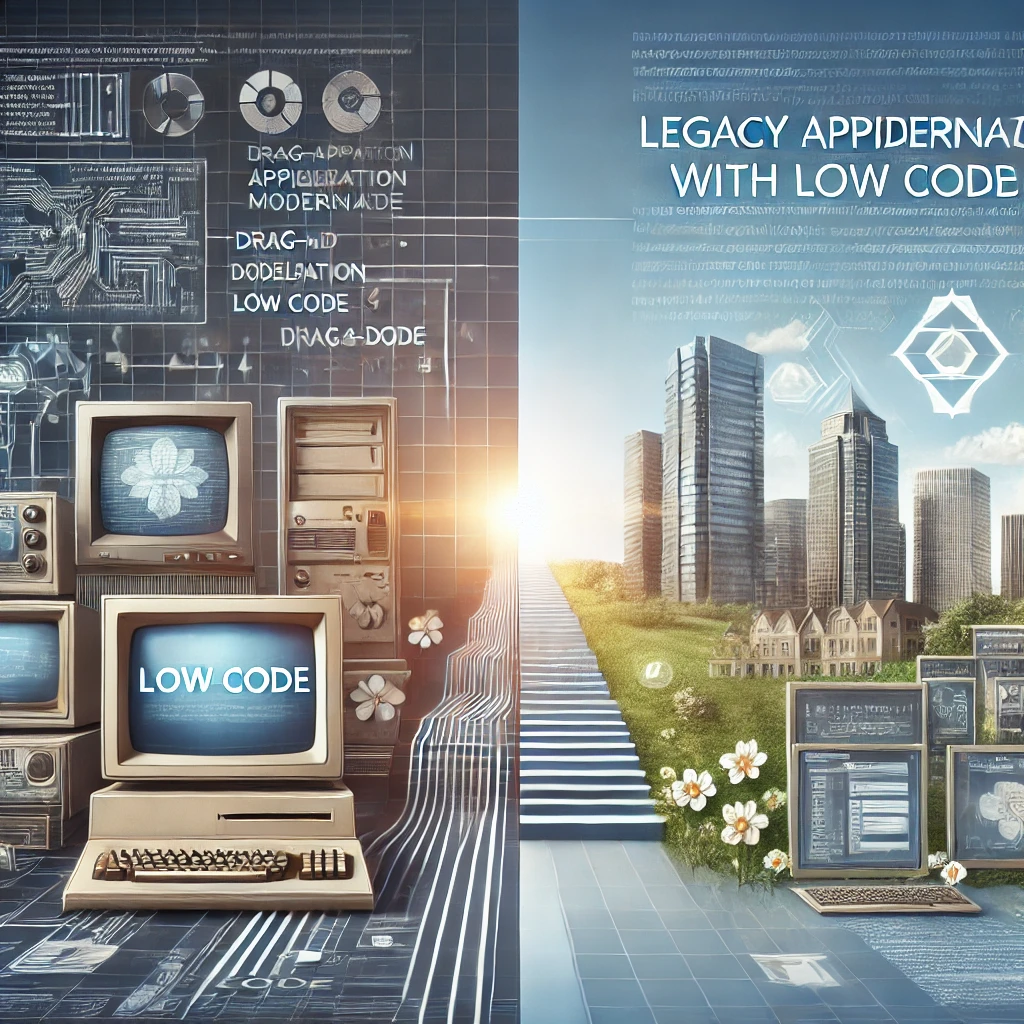Definition
Legacy application modernization with low code refers to the process of updating and transforming older software systems using low code development platforms. Low code platforms allow developers to create applications with minimal hand-coding, using visual interfaces and pre-built components. This method enables organizations to revamp their outdated applications quickly and efficiently, making them more compatible with modern technologies.
Overview
Legacy applications, which are critical for day-to-day business operations, often face challenges due to outdated technologies, inflexibility, and high maintenance costs. Over time, these systems may struggle to meet the evolving needs of businesses, especially when it comes to scalability, security, and integration with newer systems. Low code platforms provide an innovative approach to modernization by enabling developers to rapidly build new functionalities or re-engineer old ones. These platforms facilitate faster deployment, enhanced agility, and lower development costs, allowing businesses to stay competitive in an ever-changing technological landscape.
Advantages of Modernizing with Low Code
- Faster Development: Low code platforms allow rapid application development by eliminating much of the manual coding. This accelerates the modernization process.
- Cost-Effective: Low code reduces the need for large development teams, cutting down on resource costs.
- Scalability: Once modernized, applications are easier to scale to meet future demands.
- Improved Integration: Legacy systems can be integrated more smoothly with modern technologies and platforms, improving overall business efficiency.
- Flexibility and Agility: Businesses can make quicker adjustments or add new features in response to market demands or operational needs.
- Reduced Maintenance: Modernized applications require less upkeep and are more secure, reducing the long-term cost of managing legacy systems.
Disadvantages of Modernizing with Low Code
- Limited Customization: Low code platforms may offer limited customization compared to fully coded solutions, which can restrict highly specialized requirements.
- Dependence on Platform Vendors: Businesses may become reliant on specific low code platforms, potentially leading to vendor lock-in.
- Performance Concerns: While low code solutions are efficient, they may not always perform as well as fully customized applications, especially in highly complex environments.
- Learning Curve: While low code simplifies development, it still requires developers to learn the specific platform and adapt to its limitations.
Unique Information
Low code platforms are increasingly equipped with AI-driven tools that can help in modernizing applications more intelligently. Some platforms offer automated code generation, migration tools, and testing frameworks that speed up the modernization process. Additionally, they often come with built-in security features, which help to ensure that newly modernized applications are compliant with modern data privacy and security standards.
Many companies are also combining low code with other technologies like cloud services, AI, and machine learning to create even more robust and scalable modernized systems.
Frequently Asked Questions (FAQs)
- What is legacy application modernization?
Legacy application modernization involves updating or transforming outdated systems to align them with modern technologies and business needs. - What is low code?
Low code refers to a development approach that allows applications to be built with minimal manual coding using visual tools and pre-built components. - Why should businesses modernize legacy applications?
Businesses modernize legacy applications to improve efficiency, scalability, security, and integration with new technologies. - Can low code handle complex applications?
Low code is best suited for applications with medium complexity. For highly specialized systems, some custom coding might still be necessary. - What are the risks of using low code for modernization?
Risks include platform dependency, limited customization options, and potential performance concerns in highly complex environments.
Conclusion
Modernizing legacy applications with low code provides businesses with an efficient and cost-effective way to stay competitive in today’s fast-evolving technological landscape. While low code platforms may have some limitations, their benefits—such as faster development, reduced costs, and improved integration—make them a powerful tool for companies looking to future-proof their operations. By adopting low code solutions, businesses can transform their legacy systems into modern, agile applications that are better equipped to meet the demands of the digital age.
